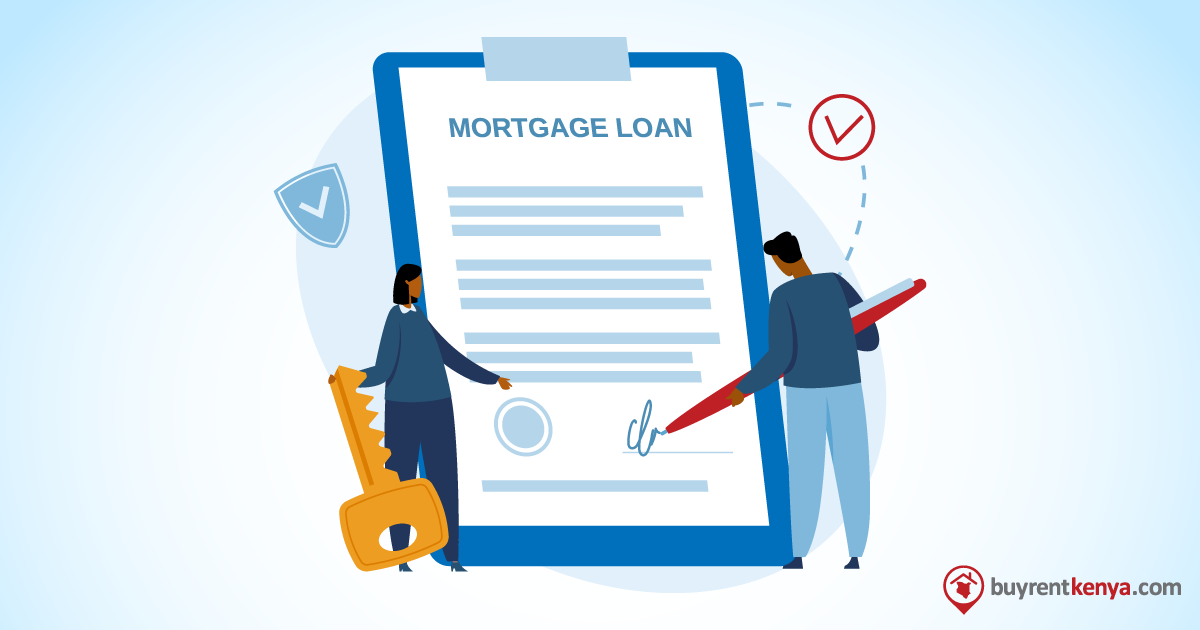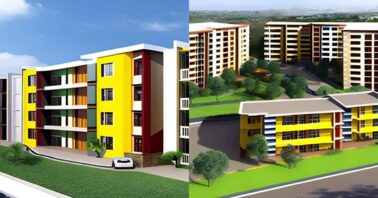We had the pleasure of interviewing Stella Mutai, Head of Property Finance at NCBA Bank Kenya Plc. It is the largest privately-owned bank in East Africa with operations in Kenya, Tanzania, Rwanda and Uganda.
The bank helps you meet your financial goals through the different financial services to save, invest and grow. We interviewed Stella Mutai to learn more about the mortgage application process to owning a home through NCBA bank.
READ ALSO: Mortgage Application Process in Kenya: Step-by-Step Guide
Table of Contents
- What mortgage products are available?
- What is the process for mortgage application at NCBA Bank Kenya Plc?
- I am looking for a property to buy.
- I already own a property. Can I borrow against it?
- I own a property. How can I develop it?
- Can I transfer my existing mortgage from another institution?
- Can we use our joint incomes for a mortgage application?
- What is the repayment amount?
- Does NCBA consider other incomes to service the loan?
- What is the maximum loan repayment period?
- What is my required contribution for a mortgage and the costs involved to get a mortgage?
- How long does it take to process a loan?
- Do I need a valuation and insurance for my property?
- If I die, what happens to the mortgage?
- What happens if I don’t pay my loan on time?
- If I lose my job, what do I need to do?
What mortgage products are available?
We have a variety of mortgage products to cater to your needs. You can get the following products;
- Home Loans
- Equity Release
- 105OYOH (Own Your Own Home)
- Construction loan to build a home or property
- Plot purchase loan
- Combination of plot and construction is referred to as “buy and build”.
What is the process for mortgage application at NCBA Bank Kenya Plc?

The first step towards mortgage application is to visit one of our mortgage centers or branches where you can sit down with our Relationship Managers. They will request for your income details which can be from employment, consultancy, business or rental income (if any).
We will review your documents and advise on the loan amount you would qualify for. This will help you budget and look for a property that you can comfortably afford to pay for. With the loan amount provided, you can start looking for property to purchase. Our Relationship Managers are always at hand to assist with the mortgage application.
READ ALSO: A Beginner’s Guide to Mortgages When Buying a House
I am looking for a property to buy.
You can visit our Property Center at the Mama Ngina branch in Nairobi as we have a list of properties available for purchase. We also organize bus tours where we visit various properties in the country.
I already own a property. Can I borrow against it?
Yes. You can actually use your property as security to get a loan. This is made possible through our Equity release product. One can get a loan against the property and use this to buy another property, construct a house, pay off other loans, pay school fees, and invest in a business and so on.
I own a property. How can I develop it?
We actually offer a Construction loan product. This loan allows you the freedom to choose a team of professionals to carry out your construction. NCBA Bank Kenya Plc has an in-house team to vet and oversee the project to ensure the construction is done to detail. The construction funds are released in stages after site inspections have been done.
Can I transfer my existing mortgage from another institution?
Yes. The process of transfer involves a ‘discharge of charge’ from the other institution then a registration of charge to NCBA Bank Kenya Plc. Note that no stamp duty is required in this case since the title is already registered in the borrower’s name. Legal fees are however applicable.
Can we use our joint incomes for a mortgage application?
Yes. You can use joint incomes to apply for a mortgage. Depending on the type of loan request, we can consider both incomes in assessing your ability to pay the loan.
What is the repayment amount?
The repayment amount depends on several factors such as loan amount, the loan term and the applicant’s age.
Does NCBA consider other incomes to service the loan?
Yes. We understand that you may have other additional sources of income. We will consider other sources of income as long as you properly document and verify them.
What is the maximum loan repayment period?
Our maximum repayment period is 25 years. We allow our customers to choose loan repayment periods ranging from 1 to 25 years. The period is dependent on the customer’s retirement age, source of income and ability to pay the loan.
What is my required contribution for a mortgage and the costs involved to get a mortgage?
For the purchase of the house, you will need to raise a 10% deposit as your down-payment. We offer owner-occupier lending to a maximum of up to 105%, between the value of the property and the selling price whichever is lower. In most circumstances, the market value and selling price are roughly equal.
The costs associated with mortgages include facility fees, Valuation fees, Stamp Duty, Legal fees and would usually amount to approximately 6-8% of the property selling price.
How long does it take to process a loan?
It takes a minimum of one (1) day to confirm eligibility. An offer letter is issued within seven (7) days. The mortgage process depends on many factors, the key one being the readiness of the customer in providing the required documentation and paying relevant fees. It also depends on the nature of the transaction.
Do I need a valuation and insurance for my property?

Yes. You need a property valuation to be carried out. A valuation report will usually indicate the fair value of a property free from subjective opinion or speculative factors. We will determine the amount of a loan on the basis of this value. It is important to note that the value of a property may in some instances be different from the sale price, either being higher or lower.
Life insurance cover aims to cover one’s life up to the extent of the mortgage and is also referred to as a mortgage protection cover. In the event of death, the insurance proceeds are utilized to settle the outstanding loan balance. This type of insurance differs from other life insurance covers that an individual may possess.
The fire protection ensures that the Bank will compensate you in the unlikely event of a fire burning down your property offered as security.
If I die, what happens to the mortgage?
In the unfortunate event of death, the mortgage life protection cover applies to cover the loan. Therefore, it is important for you to notify your relatives/loved ones of the mortgage status. This way, in the event of your death, the company knows in good time.
What happens if I don’t pay my loan on time?
You should pay mortgage payments by the last day of every month or the communicated date. In the event payment is not received by the expected date, then the loan automatically goes into arrears. The amount in arrears will thus attract the default interest rate as indicated in your offer letter.
However, if your loan arrangement falls under the scheme relationship the payroll check-off system is expected to make all loan repayments under the scheme relationship or employment income on or before the last day of every month.
If I lose my job, what do I need to do?
In the unfortunate event that you lose your job due to redundancy, we have put in place insurance known as “retrenchment cover” where the insurance company will pay your monthly repayments for up to a period of 9 months. However, the insurance does not cover job losses for any other reasons than redundancy. If you are totally incapable of servicing the loan, then you will sit with our Relationship management team to discuss the best options available and to get advice on what step to take in order to prevent account deterioration.



